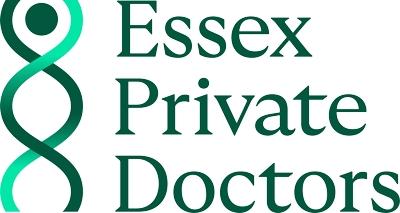PRIVATE BOTOX TREATMENT FOR BRUXISM (TEETH GRINDING) IN ESSEX
Botox Treatment for Bruxism (Teeth Grinding)
Private Botox for Bruxism (Teeth Grinding) At Essex Private Doctors
Private Botox for Bruxism (Teeth Grinding) At Essex Private Doctors
Suffering with teeth grinding (bruxism)? Ease jaw tension, protect your teeth, and finally stop that constant ache in your face
If you’re grinding your teeth constantly, experiencing jaw pain, or your ADHD medication is causing severe clenching, I can help. I’m Dr Grundy-Wheeler, and I specialise in Botox treatment for bruxism.
Why patients choose this treatment:
• Resume normal activities immediately after treatment
Dr Grundy-Wheeler – Specialist in Bruxism Treatment
GP with advanced training in Botox for jaw disorders | ADHD diagnosis & management specialist

What Is Bruxism?
Bruxism is the habitual grinding or clenching of the teeth. For some people, it happens mainly at night; for others, it’s a subconscious habit during the day that they may not even notice until the pain becomes unbearable.
Over time, this constant overuse of the jaw muscles can lead to:
In many people, bruxism is made worse by stress, poor sleep, or certain medications – particularly ADHD stimulants.
If you’ve ever caught yourself clenching your jaw so tightly it aches, or your partner has mentioned you grind your teeth in your sleep, you’re likely experiencing bruxism. It’s surprisingly common, often under-diagnosed, and without treatment, can lead to significant dental damage and chronic pain.
Understanding Bruxism (Teeth Grinding)
You’re experiencing persistent teeth grinding and jaw clenching that’s disrupting your life. The constant jaw tension interferes with work and concentration. You’re not sleeping properly. Your teeth are showing wear. The pain is relentless.
For those taking ADHD medication, the situation is particularly challenging. Your medication – Elvanse, Vyvanse, Ritalin, Concerta, or similar – has transformed your ability to function. You can finally focus at work, manage daily tasks, and be present in your relationships. But the jaw clenching has become so severe you’re considering reducing your dosage, potentially compromising your mental health treatment.
Perhaps you’ve already tried a dental splint. You may have spent £800-£1,500 on a custom night guard that now sits unused in your bathroom drawer. Many patients find splints intolerable due to gagging sensations, discomfort during sleep, mouth ulcers, or simply because they don’t address daytime grinding when you’re at work, in meetings, or commuting.
And here’s the thing about splints: they rarely help with daytime clenching, which is often where the real problem lies.
There’s an effective treatment that works 24 hours a day without requiring you to wear anything.


How Botox Injection Treatment For Bruxism Works
ADHD Medication & Bruxism
Having completed training in ADHD diagnosis and working extensively with ADHD patients, I regularly encounter medication-induced bruxism. This is precisely why I offer this treatment.
Many people taking stimulant medications for ADHD experience increased jaw clenching or grinding. For those patients, reducing the medication isn’t always an option, as it can affect their concentration and daily functioning. In these cases, Botox can be a highly effective solution.
We work closely with clinicians experienced in ADHD management, and this treatment has already brought significant relief for many stimulant-related bruxism patients.

Am I Suitable for Botox for Bruxism Treatment?
You’re Likely Suitable If:

Who Shouldn’t Have This Treatment
Botox for bruxism isn’t suitable for everyone. This treatment is not appropriate if you:
Have mechanical TMJ problems:
Other exclusions:
If you have mechanical jaw issues, you need specialist maxillofacial assessment. During your assessment, if I identify mechanical problems, I’ll refer you to the appropriate specialist rather than proceed with treatment that won’t address your underlying condition.
If I determine you’d be better served by dental or specialist referral, I’ll guide you appropriately.


Your Treatment Journey
What Changes and What Doesn’t
What You’ll Notice:
Reduced grinding force – You’ll still chew normally, but won’t grind with destructive intensity
Less jaw tension and aching – The constant tightness eases significantly
Improved sleep – If grinding was disrupting sleep, this typically improves
More comfortable jaw function – Throughout the day, your jaw simply feels better
For ADHD patients specifically – Your medication continues working exactly as before for focus and concentration. We’ve eliminated the jaw-clenching side effect whilst maintaining medication efficacy.
What Remains Unchanged:
Your ability to eat all foods normally – We’re reducing force, not eliminating function
Your speech patterns – No impact whatsoever on how you speak
Your facial expressions – You’ll look exactly the same – nothing will be ‘frozen’
Your singing voice – Completely unaffected
Your ability to yawn or open wide – No restriction on jaw opening for dental procedures
Your appearance – Though some facial slimming may occur as the muscle relaxes, this isn’t our primary objective.


Botox vs Dental Splints For Bruxism
Many people are advised by their dentist to try a mouth guard or splint, and these can work well for some.
Properly fitted dental splints can be highly effective and should arguably be considered first-line treatment for many patients.
When Dental Splints Don’t Work:
But not everyone can tolerate them. Many patients find dental splints intolerable:
• Can feel unhygienic or inconvenient
For stimulant-induced bruxism specifically: Splints rarely help with daytime clenching, which is often where the real problem lies.
If grinding occurs predominantly during waking hours whilst at work, in meetings, or commuting, a night guard simply doesn’t address the actual problem.
Understanding Risks and Side Effects
When carried out by a qualified medical practitioner, Botox is very safe. I believe in providing complete transparency about potential risks.
Occasional Side Effects
Minor asymmetry – One side may respond slightly differently to the other. Temporary weakness or mild asymmetry. Usually subtle and temporary. Resolves completely when Botox wears off. Can be adjusted at your 6-week review if it occurs.
Temporary injection site reactions – Mild bruising or tenderness at injection sites. Slight redness, swelling, or bruising at injection points. Resolves within hours to a few days. Rarely affects daily activities.
Rare Complications (Fewer than 1 in 1,000 patients)
Parotid gland involvement – The parotid is your salivary gland located near the masseter muscle. Inadvertent injection could cause temporary dry mouth on one side. We carefully avoid this gland during treatment. We take care to avoid the salivary glands and surrounding structures to minimise these risks. Most cases resolve completely. Permanent change is extremely rare.
Variable Response
Some patients don’t respond as favourably as others. We start conservatively to assess your individual response. We can adjust dosage at your 6-week review. If treatment isn’t improving your pain, I can refer you to appropriate maxillofacial consultants or specialist dentists.


Frequently Asked Questions
Why Choose Dr Grundy-Wheeler for Bruxism Treatment
Specialist Medical Training
I’m Dr Grundy-Wheeler, a General Practitioner with specialist training in Botox for bruxism and TMJ disorders. I learned from maxillofacial consultants and dental specialists who work exclusively in this field.
I’ve also completed training in ADHD diagnosis and management. I work extensively with ADHD patients and understand the medication-bruxism connection thoroughly. This understanding comes from clinical experience treating patients facing the impossible choice between mental health and jaw health.
This is medical intervention for pain relief and tooth protection, not cosmetic treatment. My approach is grounded in evidence-based medicine. Unlike purely aesthetic practitioners, my focus is on your wellbeing and long-term outcomes.
If you require onward referral to maxillofacial specialists, dentists, or other relevant professionals, I’ve established relationships and can ensure you’re directed to appropriate expertise.
Ready to Take the Next Step?
If you’re experiencing teeth grinding or jaw clenching, particularly if related to ADHD medication, I can help you determine whether Botox treatment is appropriate for your situation.
If you’re struggling with jaw clenching, grinding, or facial tension – and you’re tired of splints, book your botox for bruxism appointment.


